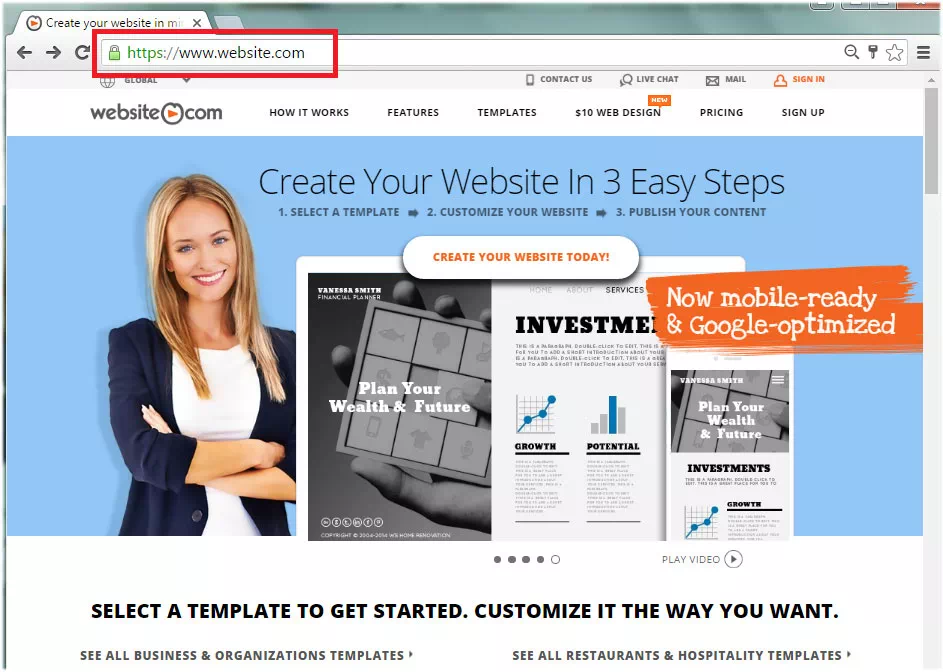Domain free websites offer a compelling way to establish an online presence without the expense and commitment of a custom domain. These platforms, often powered by free hosting services, provide a streamlined approach to creating basic websites, blogs, or portfolios. They are ideal for individuals or small businesses looking to test the waters of online presence or showcase their work without significant financial investment.
Examples of popular domain free website platforms include Wix, Weebly, and Google Sites, each offering a unique set of features and functionalities. While these platforms provide a convenient entry point into the world of web development, it’s important to understand their limitations, such as restricted customization options and the inclusion of platform branding.
What is a Domain Free Website?

A domain free website is a website that is hosted on a platform that provides a free subdomain for your website. This means that your website address will look something like this: “yourwebsite.platformname.com” instead of “yourwebsite.com”. While you don’t have to pay for a domain name, you’ll be using a subdomain provided by the hosting platform.
Domain free websites are a great option for people who are just starting out with creating a website and don’t want to invest in a domain name right away. They can also be a good choice for personal websites or simple business websites that don’t require a lot of customization.
Popular Domain Free Website Platforms
Domain free websites are hosted on various platforms, each with its own set of features and functionalities. Here are some popular examples:
- WordPress.com: A popular platform known for its ease of use and extensive customization options. It offers a free plan that includes a subdomain, basic features, and limited storage space.
- Wix: Another popular platform that provides a drag-and-drop website builder, making it easy to create websites without coding knowledge. Their free plan offers a subdomain and limited features.
- Google Sites: A simple and straightforward platform that is ideal for creating basic websites. It offers a free plan with a subdomain and limited customization options.
- Blogger: A free blogging platform that is owned by Google. It offers a subdomain and basic blogging features.
Advantages and Disadvantages of Domain Free Websites
Domain free websites offer a number of advantages and disadvantages that you should consider before choosing this option.
Advantages
- Free to Use: One of the most significant advantages of domain free websites is that they are free to use. You don’t have to pay for a domain name or hosting, making them a budget-friendly option for individuals and small businesses.
- Easy to Set Up: Most domain free website platforms are designed to be user-friendly, making it easy to set up a website without any prior technical knowledge.
- No Maintenance: Domain free website platforms typically handle all the technical aspects of running a website, such as security and updates, eliminating the need for you to manage these tasks.
Disadvantages
- Limited Features: Free plans often come with limited features, such as storage space, bandwidth, and customization options. This can restrict your website’s functionality and growth potential.
- Subdomain Branding: Your website address will include the hosting platform’s name in the subdomain, which can affect your branding and professionalism. This can make it harder to establish a strong online presence.
- Limited Control: You may have limited control over your website’s design and functionality, as the platform’s features and restrictions may limit your options.
- Advertisements: Some domain free website platforms may display advertisements on your website, which can affect the user experience and detract from your branding.
- Less Flexibility: You may have limited options for customizing your website’s design and features, as the platform’s pre-built templates and functionalities may restrict your options.
Domain Free Website Features

Domain free websites offer a range of features, making them attractive for individuals and small businesses. These features aim to simplify website creation and management, providing a user-friendly experience without the complexities of domain registration and hosting.
Features Offered
Domain free websites typically offer a set of features that enable users to create basic websites without the need for domain registration or hosting. These features can vary depending on the platform, but common features include:
- Free subdomain: Domain free websites provide a free subdomain, such as “yoursite.websitebuilder.com.” While not as professional as a custom domain, it allows users to establish an online presence without any upfront costs.
- Website templates: These platforms offer pre-designed website templates that can be easily customized. This allows users to create visually appealing websites without needing coding knowledge.
- Drag-and-drop editor: Most domain free website platforms offer a drag-and-drop editor that simplifies website creation. Users can easily add content, images, and other elements to their website by simply dragging and dropping them into place.
- Basic website functionalities: These platforms provide essential functionalities like contact forms, photo galleries, and blog integration, enabling users to create interactive websites.
- Limited storage and bandwidth: Domain free websites often have limited storage and bandwidth. This means that users have a restricted amount of space to store their website files and a limit on the number of visitors their website can handle.
- Limited customization: While templates provide a starting point, customization options on domain free websites are often limited. Users may have fewer options to modify the website’s design or add advanced features.
- Ads and branding: Some domain free website platforms display ads on websites hosted on their platform, potentially impacting the user experience. Additionally, the platform’s branding may be present on the website, which could detract from the user’s desired look and feel.
Advantages and Disadvantages, Domain free website
The features offered by domain free websites have both advantages and disadvantages.
Advantages
- Cost-effectiveness: Domain free websites offer a free and easy way to establish an online presence without any initial investment.
- User-friendliness: These platforms are designed to be user-friendly, making it easy for individuals with little to no technical experience to create a website.
- Quick setup: Domain free websites can be set up quickly and easily, allowing users to get their website online within a short timeframe.
Disadvantages
- Limited features and customization: Domain free websites often have limited features and customization options compared to paid hosting solutions.
- Subdomain limitations: The use of a subdomain can make the website appear less professional and may not be ideal for businesses looking to establish a strong brand identity.
- Performance limitations: Domain free websites may experience performance issues due to limited resources and shared hosting environments.
- Ads and branding: The presence of ads and platform branding can detract from the user’s desired website experience.
- Lack of control: Users may have limited control over their website’s design and functionality, as they are subject to the platform’s restrictions.
Feature Comparison
The following table compares the features offered by different domain free website platforms:
| Platform | Free Subdomain | Website Templates | Drag-and-Drop Editor | Basic Functionalities | Storage and Bandwidth | Customization Options | Ads and Branding |
|---|---|---|---|---|---|---|---|
| Wix | Yes | Yes | Yes | Yes | Limited | Limited | Yes |
| Weebly | Yes | Yes | Yes | Yes | Limited | Limited | Yes |
| WordPress.com (Free Plan) | Yes | Yes | Yes | Yes | Limited | Limited | Yes |
| Jimdo | Yes | Yes | Yes | Yes | Limited | Limited | Yes |
| Strikingly | Yes | Yes | Yes | Yes | Limited | Limited | Yes |
Concluding Remarks

Ultimately, the decision to use a domain free website hinges on your specific needs and goals. If you require a simple, cost-effective way to create a basic online presence, a domain free website can be a suitable option. However, if you envision a more customized, branded, or professional website, investing in a custom domain and paid hosting may be a better long-term strategy.
A domain-free website is a great way to get started with a project, especially if you’re not sure what you want to build yet. It can be a great place to experiment with different ideas and see what works.
For example, if you’re interested in creating a website about diy shelving , you can use a domain-free website to build a prototype and test out your ideas. Once you’re happy with the design and functionality, you can then register a domain name and upgrade your website to a paid hosting plan.

